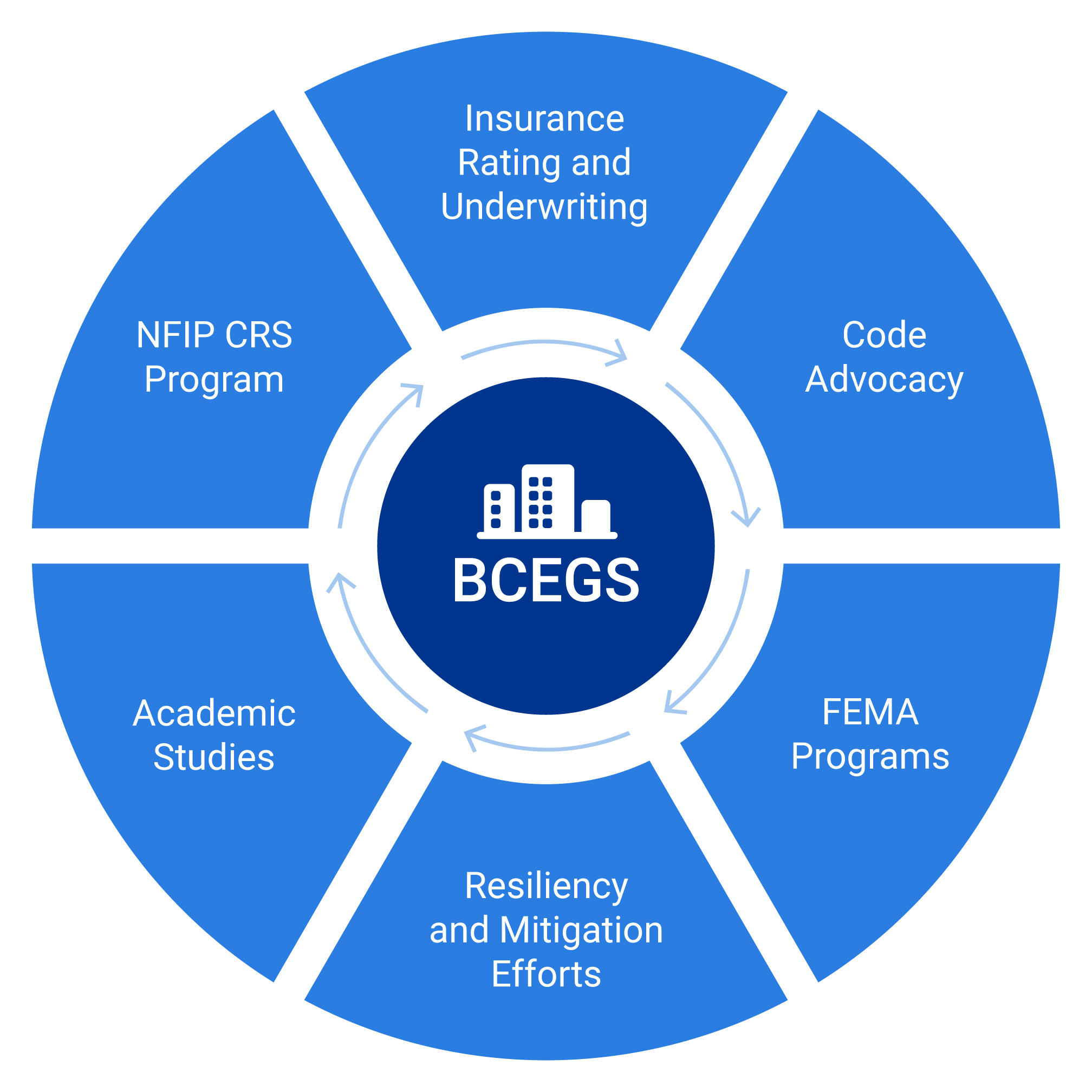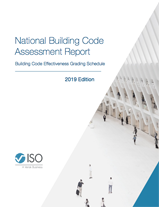
As well as being a factor in insurance rating and underwriting, BCEGS data is used in a variety of programs and applications:
Insurance Applications
- Filed advisory credits by peril
- Building Underwriting Reports
- Enhanced Wind Rating Program applicable to commercial properties
- AIR Catastrophe Models
Federal Emergency Management Agency (FEMA)
- BCEGS classifications are a factor in the National Flood Insurance Program’s (NFIP) Community Rating System (CRS) which offers potential discounts on flood insurance.
- FEMA has used information about community building code enforcement efforts in their Loss Avoidance Studies (LAS). These studies determine losses avoided due to their hazard mitigation actions.
- BCEGS data is utilized in the Building Code Adoption Tracking System (BCATS) within FEMA to inform policy decisions and share data about efforts toward code adoption with regional partners.
Federal Alliance for Safe Homes (FLASH)
We are a legacy partner and supporter of the Federal Alliance for Safe Homes, a code advocacy organization promoting resilient construction and effective code enforcement practices.
Academic Studies
- Author - Risk Management and Decision Processes Center, The Wharton School, University of Pennsylvania
- Convective Storm Vulnerability: Quantifying the Role of Effective and Well-Enforced Building Codes in Minimizing Missouri Hail Property Damage.
- The Role of Effective and Well Enforced Building Codes in Reducing Wind Driven Losses: The Case of Florida
- Demonstrating the Intensive Benefit to the Local Implementation of a Statewide Building Code
- Author - FEMA
Code Advocacy
- The International Code Council (ICC) uses BCEGS code adoption information to assist in their adoption tracking efforts.
- We provides every community building official with detailed information about their program to assist in making management decisions and to inform their stakeholders about efforts to administer local codes effectively.
